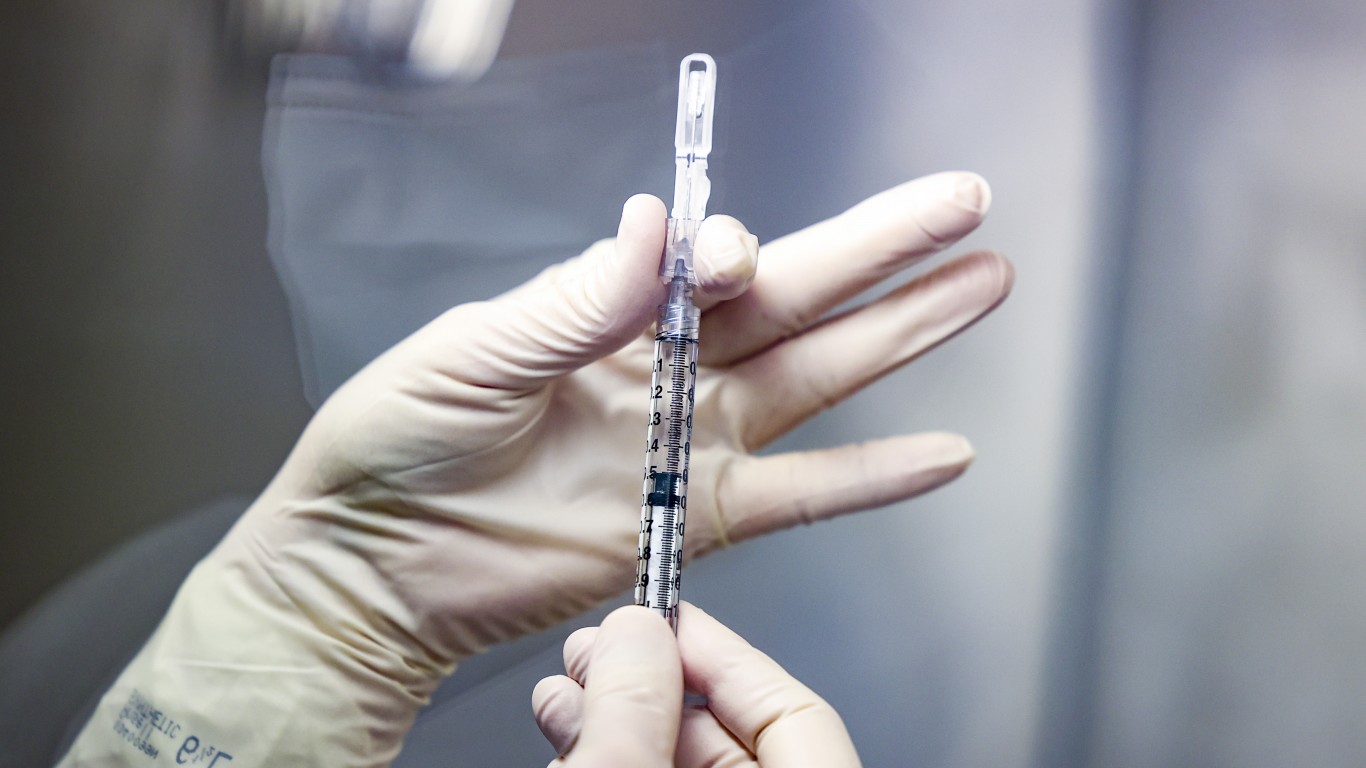

The rate of the spread of COVID-19 had slowed across America. Increases in daily fatal and confirmed cases are still about half what they were three months ago. Nevertheless, 571,464 Americans have died as of Friday, which is about 20% of the world’s total. The global total just moved above a staggering three million. Confirmed cases have reached 31,764,754, or about 23% of the global number. Hospitalizations, which were over 100,000 a day during the peak wave, dropped into the thousands.
The Centers for Disease Control and Prevention (CDC) and several media sources show that the numbers of cases have started to rise again in well over half the states in America, currently led by a rapid spread in Michigan. That state recently asked the federal government for additional vaccine doses because of the rising spread of COVID-19 there. The request was denied, but the head of the CDC suggested the state be shut down to resolve the problem.
Much of the country has “opened up,” which has caused worries that there will be a fourth wave of the disease. Just two weeks ago, the nation’s newspapers were filled with reports of large college parties in Florida with hundreds of people in close proximity without masks. More people flew over the Easter weekend than any other weekend since the start of the pandemic. This kind of activity has led to public health officials predicting that fourth wave. And COVID-19 has affected employment in each state differently. Here is how that has played out depending on where people live.
Variants of the disease are among the dangers epidemiologist and public health officials worry about. At least one, first identified in the United Kingdom, now accounts for most new U.S. cases. This variant also could be more deadly. The CDC currently tracks three variants for the public on its website. It has 20,915 cases of the B.1.1.7 variant reported across all 50 states, as of April 12. There were 453 cases reported of the B.1.351 variant across 36 states and 497 reported cases of the P.1 variant across 31 states. Several other variants have emerged that the CDC does not report on to the public.
The pace of the spread of the disease remains in part a race between vaccinations and the rising number of potentially dangerous variants. So far, 38% of the adult population has received at least one dose of vaccine and 24% are fully vaccinated. While the Pfizer and Moderna vaccines require two shots, the one from Johnson & Johnson requires just a single dose. According to The New York Times, 258,502,815 doses have been delivered in the United States and 202,282,923 of them (78%) have been administered.
The state that is struggling the get doses delivered to people for vaccination is Mississippi where the figure is only 65%. So far, according to The New York Times, 2,213,315 doses have been delivered, and 1,429,671 shots have been given. At 29%, Mississippi is also well behind the national average for people who have been given at least one shot.
The New York Times recently reported that “public health experts say the pileup of unclaimed appointments in Mississippi exposes something more worrisome: the large number of people who are reluctant to get vaccinated.”
People refusing vaccines is a national problem, but in Mississippi, it is unusually severe.
Click here to read about one year of living through COVID-19.
Essential Tips for Investing: Sponsored
A financial advisor can help you understand the advantages and disadvantages of investment properties. Finding a qualified financial advisor doesn’t have to be hard. SmartAsset’s free tool matches you with up to three financial advisors who serve your area, and you can interview your advisor matches at no cost to decide which one is right for you. If you’re ready to find an advisor who can help you achieve your financial goals, get started now.
Investing in real estate can diversify your portfolio. But expanding your horizons may add additional costs. If you’re an investor looking to minimize expenses, consider checking out online brokerages. They often offer low investment fees, helping you maximize your profit.
Thank you for reading! Have some feedback for us?
Contact the 24/7 Wall St. editorial team.



